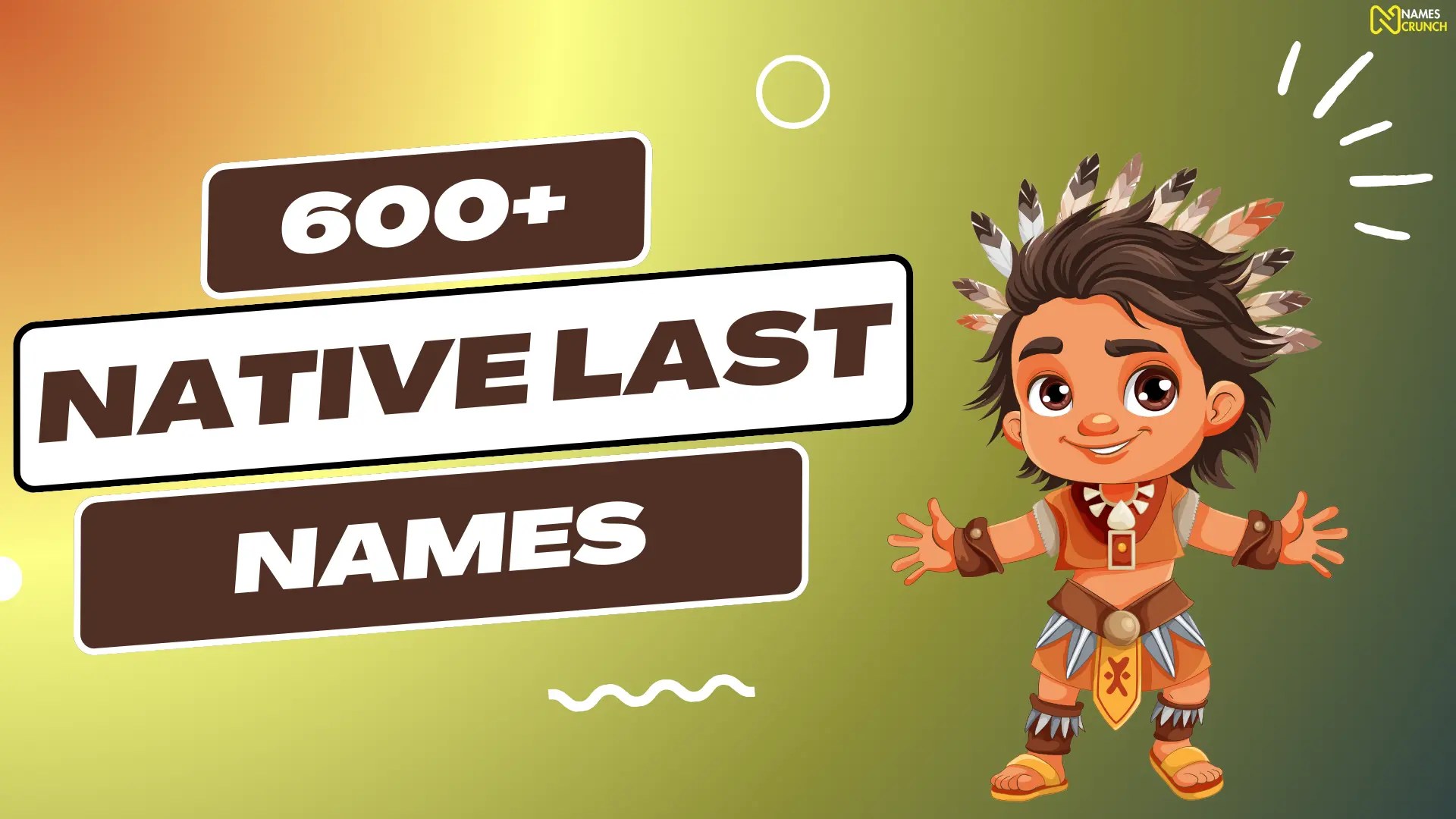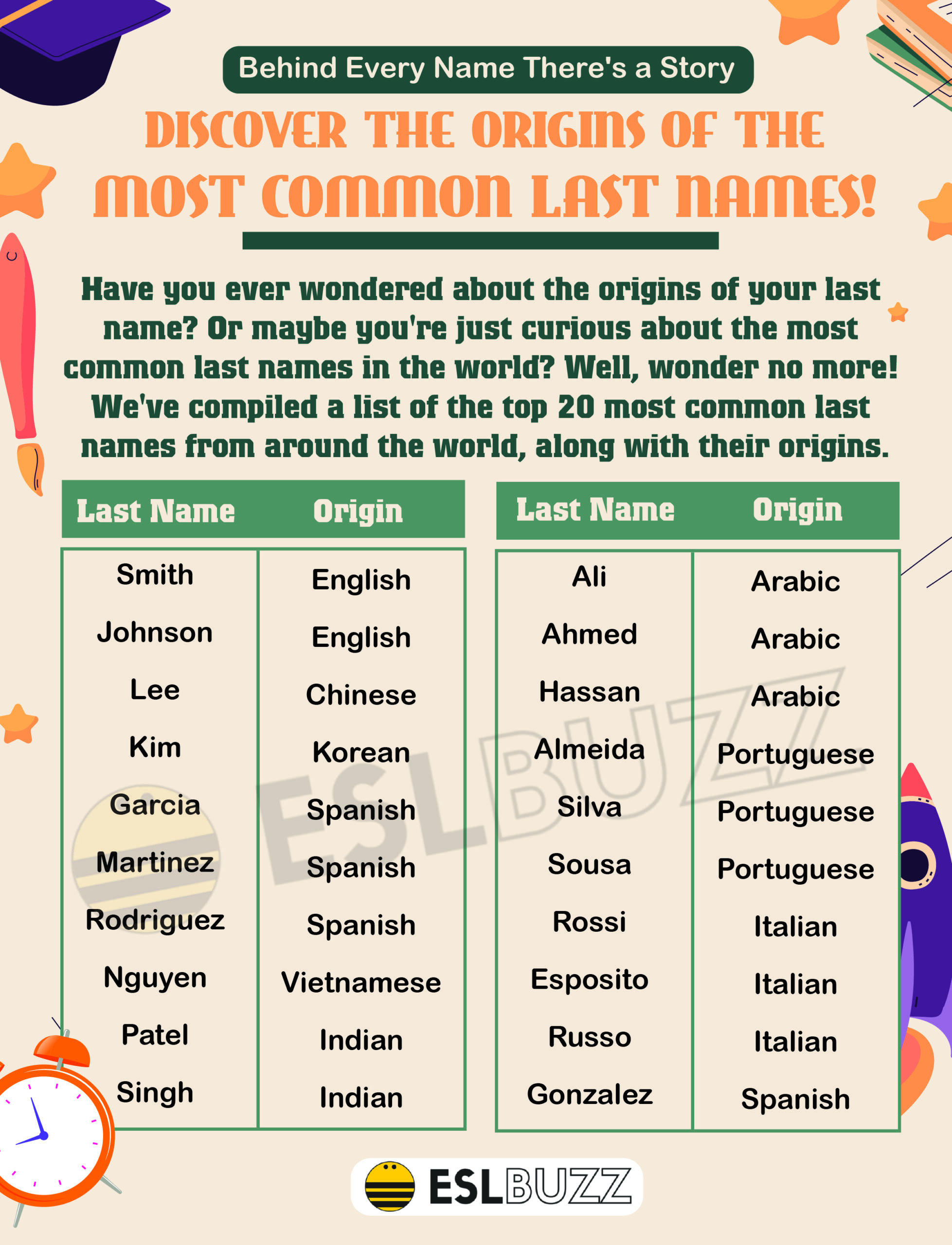Native last names carry centuries of cultural significance, reflecting the deep-rooted traditions and histories of indigenous communities worldwide. These surnames are more than just identifiers; they are a testament to the values, stories, and ancestral ties that bind generations together. From the plains of North America to the rainforests of South America, each native last name tells a unique story of resilience, identity, and pride. Understanding these names not only provides insight into the lives of indigenous peoples but also helps preserve their rich heritage for future generations.
Whether you're tracing your ancestry, researching indigenous cultures, or simply curious about the origins of native last names, this article will guide you through their fascinating history and meaning. These names often derive from natural elements, clan affiliations, or significant events, making them a treasure trove of cultural knowledge. By exploring their origins and significance, we can better appreciate the diversity and depth of indigenous traditions.
Native last names are a bridge to the past, offering a glimpse into the lives of those who walked the earth long before modern civilization. They serve as markers of identity, connecting individuals to their ancestors and communities. In this article, we will delve into the origins, meanings, and cultural importance of these names, shedding light on their enduring legacy.
- What Are Native Last Names?
- How Do Native Last Names Reflect Culture?
- Why Are Native Last Names Important?
- Can Native Last Names Be Traced Back to Ancient Times?
- Famous Figures with Native Last Names
- Biography of a Prominent Individual
- Personal Details and Bio Data
- How Can You Research Your Native Last Name?
- Preserving the Legacy of Native Last Names
- Conclusion
What Are Native Last Names?
Native last names are surnames that originate from indigenous communities across the globe. These names often carry deep cultural significance, reflecting the traditions, beliefs, and histories of the people who bear them. They are typically derived from elements of nature, such as animals, plants, or geographic features, and may also signify clan affiliations or ancestral lineage.
For example, in Native American cultures, last names like "Running Bear" or "Red Hawk" are inspired by animals and their symbolic meanings. Similarly, in Maori culture, surnames like "Te Aroha" (meaning "the love") reflect emotional or spiritual concepts. These names are not just labels; they are a way of honoring the natural world and the spiritual beliefs of indigenous peoples.
How Do Native Last Names Reflect Culture?
Native last names are a reflection of the culture and environment in which they originated. They often embody the values, beliefs, and practices of the communities that created them. For instance, many indigenous names are tied to the natural world, symbolizing the deep connection between people and their surroundings.
- Names inspired by animals often represent qualities such as strength, wisdom, or courage.
- Geographic names may indicate a person's ancestral homeland or a significant location in their community.
- Names derived from spiritual concepts highlight the importance of faith and tradition in indigenous cultures.
These names serve as a reminder of the rich cultural heritage of indigenous peoples and their enduring connection to the land and their ancestors.
Why Are Native Last Names Important?
Native last names are more than just identifiers; they are a vital part of cultural identity. They help individuals connect with their roots, preserve their heritage, and pass down traditions to future generations. These names also play a crucial role in fostering a sense of belonging and pride within indigenous communities.
In a world where indigenous cultures are often marginalized, native last names serve as a powerful reminder of resilience and survival. They are a testament to the strength and endurance of indigenous peoples, who have managed to preserve their traditions despite centuries of colonization and oppression.
Can Native Last Names Be Traced Back to Ancient Times?
Many native last names can indeed be traced back to ancient times, offering a glimpse into the lives and beliefs of early indigenous communities. These names often carry stories of migration, conquest, and survival, making them a valuable resource for historians and genealogists.
For example, some Native American surnames can be linked to specific tribes or clans, providing clues about a person's ancestry. Similarly, Maori surnames often include references to ancestral canoes or migration routes, highlighting the importance of these events in Maori history.
By studying these names, researchers can gain a deeper understanding of the social structures, belief systems, and historical events that shaped indigenous cultures.
Famous Figures with Native Last Names
Throughout history, many prominent individuals have carried native last names, using their influence to advocate for indigenous rights and cultural preservation. These figures serve as role models for their communities and ambassadors for their cultures.
Biography of a Prominent Individual
One such individual is **Wilma Mankiller**, a renowned Cherokee leader and activist. As the first female Principal Chief of the Cherokee Nation, Mankiller dedicated her life to improving the lives of her people and promoting indigenous rights.
Personal Details and Bio Data
| Full Name | Wilma Pearl Mankiller |
|---|---|
| Date of Birth | November 18, 1945 |
| Date of Death | April 6, 2010 |
| Tribe | Cherokee Nation |
| Notable Achievements | First Female Principal Chief of the Cherokee Nation, advocate for indigenous rights, author |
How Can You Research Your Native Last Name?
Researching your native last name can be a rewarding journey into your family's history. Start by gathering information from family members, such as stories, documents, or photographs, that might provide clues about your ancestry. You can also consult historical records, tribal archives, or genealogical databases to trace the origins of your surname.
Many indigenous communities have resources available to help individuals explore their heritage. These may include cultural centers, museums, or online platforms dedicated to preserving indigenous history. By connecting with these resources, you can gain a deeper understanding of your native last name and its significance.
Preserving the Legacy of Native Last Names
Preserving the legacy of native last names is essential for ensuring that indigenous cultures continue to thrive. This can be achieved through education, advocacy, and the celebration of indigenous traditions. By sharing stories, teaching younger generations, and supporting indigenous communities, we can help keep these names alive for future generations.
Conclusion
Native last names are a testament to the rich cultural heritage of indigenous peoples. They are more than just identifiers; they are a bridge to the past, connecting individuals to their ancestors and communities. By understanding and preserving these names, we can honor the resilience and traditions of indigenous cultures and ensure that their legacy endures for generations to come.

